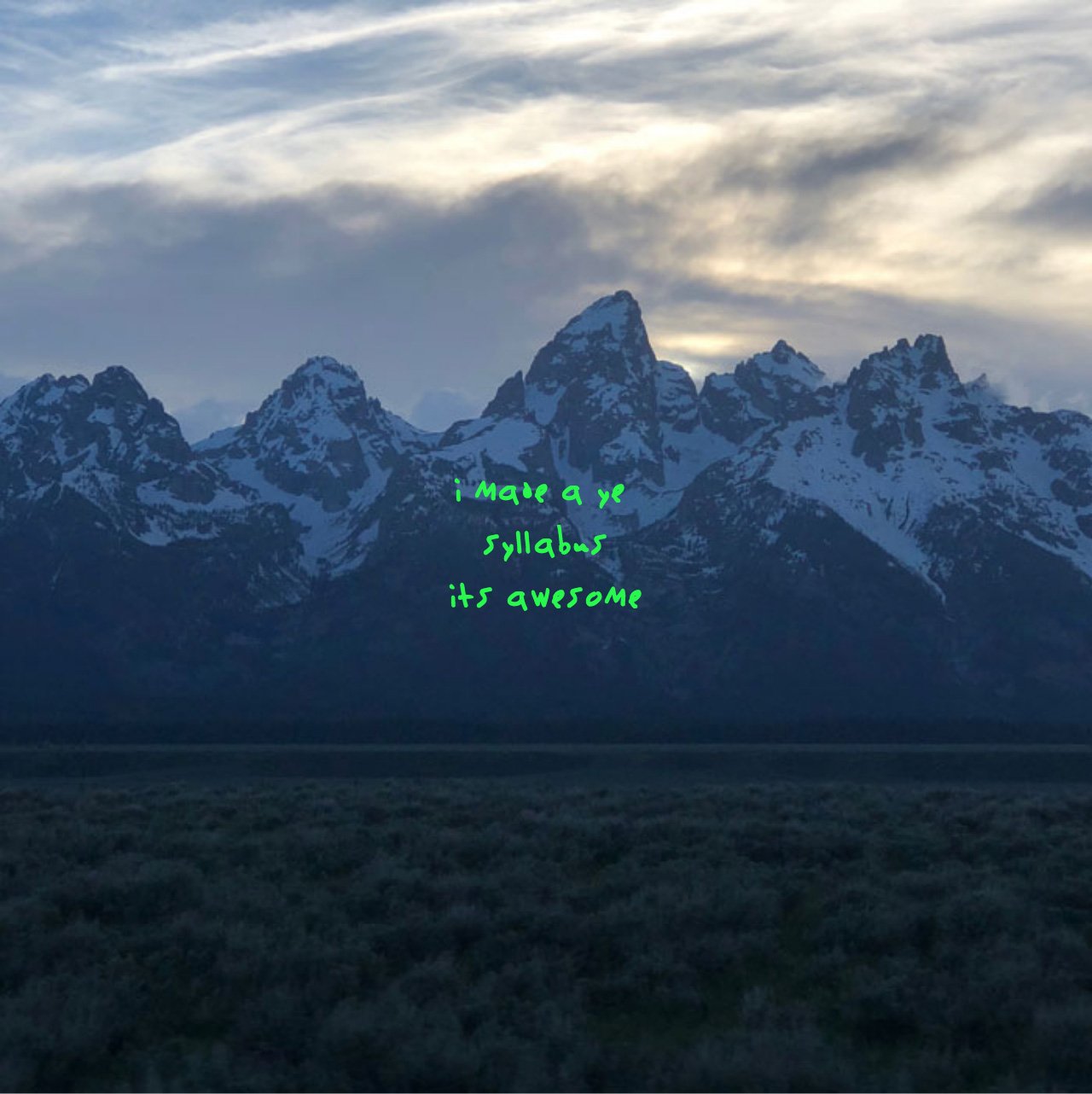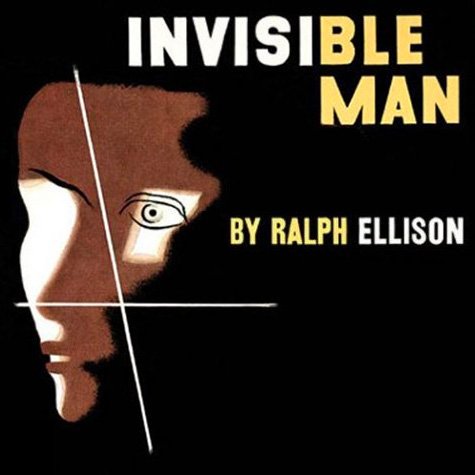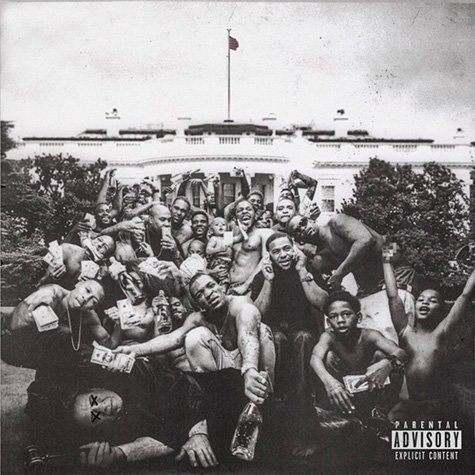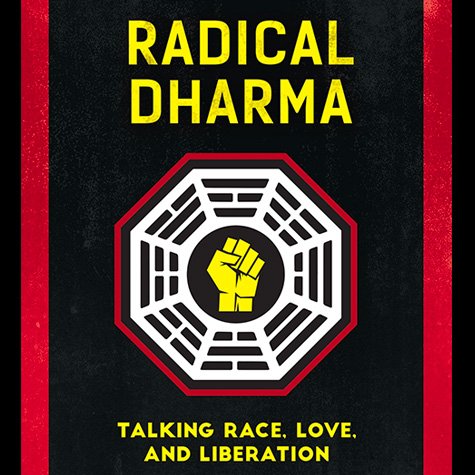
This reader is composed of works that have guided my listening of Kanye West’s ye. This is not a list of references in the album, nor is this a review or analysis of the album. It’s a shortlist of works and related social artifacts that help articulate life lessons I’m personally working on, and which have been present in my listening of the album. I’m not putting any of these works necessarily as endorsements, but I do think their thematic ties with ye and to each other are fascinating.
In this syllabus, I reference four works whose passages serve as bookends for each “lesson,” accompanied by the work’s social context via public commentary and author reflection. I think each of these works recall themes that encircle ye as a piece of art and social spectacle, and the complementing artifacts remind us that the byproducts of our content consumption tell us more about ourselves than the content could ever hope to implicate. While it’s the role of the artist to prove art’s influence on the world, it’s the public’s responsibility to determine how the energy of that influence manifests.
–
Lesson 1: Prison of the Mind

A New Earth by Eckhart Tolle, 2005
–
The most beautiful thoughts are always inside the darkest
–
from Chapter 1
Ego is no more than this: identification with form, which primarily means thought forms. If evil has any reality – and it has a relative, not an absolute reality – this is also its definition: complete identification with form – physical forms, thought forms, emotional forms. This results in a total unawareness of my connectedness with the whole, my intrinsic oneness with every “other” as well as with the Source. This forgetfulness is original sin, suffering, delusion. When this delusion of utter separateness underlies and governs whatever I think, say, and do, what kind of world do I create? To find the answer to this, observe how humans relate to each other, read a history book, or watch the news on television tonight.
If the structures of the human mind remain unchanged, we will always end up re-creating fundamentally the same world, the same evils, the same dysfunction.
–
I’ve been trying to make you love me
But everything I try just takes you further from me
–
Jim and Andy: The Great Beyond, Netflix, 2017
(Jim Carrey:) There’s the avatar you create, and the cadence you come up with that is pleasing to people and takes them away from their issues, and it makes you popular – and at some point you have to peel it away. It’s not who you are. At some point you have to live your true man. Truman Show really became a prophecy for me. It is constantly reaffirming itself as a teaching, almost. As a real representation of what I’ve gone through in my career, what everyone goes through when they create themselves to be popular or to be successful. It’s not just show business, it’s Wall Street, it’s anywhere. You go to the office and you put a monkey suit on, and you act a certain way, and you say a certain thing, and you lie through your teeth at times, and you do whatever you need to do to look like a winner. And at some point in your life you have to go, “I don’t care what it looks like. I found a hole in the psych and I’m going through. And I’m going to face the abyss of not knowing whether that’s going to be okay with everybody or not.”
–
I got the mind state to take us past the stratosphere
I use the same attitude that done got us here
I live for now, I don’t know what happens after here
–
“Why Eckhart Tolle’s Evolutionary Activism Won’t Save Us”, Tikkun Magazine, 2012
This is almost incomprehensible. How does he know what the evolutionary stages of consciousness are? What is the relationship between evolved consciousness and capitalism? When we no longer identify with form will all injustices be eradicated? If not, and if it is possible for us as a species to be “awake” while simultaneously living in an and being complicit with an oppressive industrial society then we should seriously question the social and political dimensions of spiritual transformation.
Why can’t this divine evolutionary impulse awaken us to the reality of things that actually matter like deforestation, pollution, racism, homophobia or imperialism? Why couldn’t experiencing Being and connecting to our divine source actually provide us with tangible knowledge and concern about the ravages of industrial capitalism instead of disembodied, abstract and politically neutral states of presence? Tolle and others like Ken Wilber and Andrew Cohen believe that God evolves through everyone — Tea Partiers and KKK members, white liberals, black feminists, Chinese Taoists and queer activists to merely discover their deepest and truest self. Unfortunately this divine act does extremely little to actually move us towards global and planetary change.
–
Plotting, scheming, finding
Reason to defend all of your violent nights
–
from Chapter 3
In certain cases, you may need to protect yourself or someone else from being harmed by another, but beware of making it your mission to “eradicate evil,” as you are likely to turn into the very thing you are fighting against. Fighting unconsciousness will draw you into unconsciousness yourself. Unconsciousness, dysfunctional egoic behavior, can never be defeated by attacking it. Even if you defeat your opponent, the unconsciousness will simply have moved into you, or the opponent reappears in a new disguise. Whatever you fight, you strengthen, and what you resist, persists.
–
Lesson 2: Negotiating Ideology in Public

Invisible Man by Ralph Ellison, 1952
–
I’ma lose my mind in it, crazy, that medulla oblongata
–
from Chapter 11:
I listened with growing uneasiness to the conversation fuzzing away to a whisper. Their simplest words seemed to refer to something else, as did many of the notions that unfurled through my head. I wasn’t sure whether they were talking about me or someone else. Some of it sounded like a discussion of history . . .
“The machine will produce the results of a prefrontal lobotomy without the negative effects of the knife,” the voice said. “You see, instead of severing the prefrontal lobe, a single lobe, that is, we apply pressure in the proper degrees to the major centers of nerve control – our concept is Gestalt – and the result is as complete a change of personality as you’ll find in your famous fairy-tale cases of criminals transformed into amiable fellows after all that bloody business of a brain operation. And what’s more,” the voice went on triumphantly, “the patient is both physically and neurally whole.”
“But what of his psychology?”
“Absolutely of no importance!” the voice said. “The patient will live as he has to live, and with absolute integrity. Who could ask more? He’ll experience no major conflict of motives, and what is even better, society will suffer no traumata on his account.”
–
Shit could get menacing, frightening, find help
Sometimes I scare myself
–
Ralph Ellison’s National Book Award Acceptance Speech, 1953
If I were asked in all seriousness just what I considered to be the chief significance of Invisible Man as a fiction, I would reply: Its experimental attitude and its attempt to return to the mood of personal moral responsibility for democracy which typified the best of our nineteenth-century fiction.
When I examined the rather rigid concepts of reality which informed a number of the works which impressed me and to which I owed a great deal, I was forced to conclude that for me and for so many hundreds of thousands of Americans, reality was simply far more mysterious and uncertain, and at the same time more exciting, and still, despite its raw violence and capriciousness, more promising.
To see America with an awareness of its rich diversity and its almost magical fluidity and freedom I was forced to conceive of a novel unburdened by the narrow naturalism which has led after so many triumphs to the final and unrelieved despair which marks so much of our current fiction. I was to dream of a prose which was flexible, and swift as American change is swift, confronting the inequalities and brutalities of our society forthrightly, but yet thrusting forth its images of hope, human fraternity, and individual self-realization. A prose which would make use of the richness of our speech, the idiomatic expression, and the rhetorical flourishes from past periods which are still alive among us. Despite my personal failures there must be possible a fiction which, leaving sociology and case histories to the scientists, can arrive at the truth about the human condition, here and now, with all the bright magic of the fairy tale.
–
You want me working on my messaging
When I’m thinking like George Jetson
But sounding like George Jefferson
Then they questioning my methods then
–
“The Long Shadow of Invisible Man“, Humanities, 2002
In the 1960s and 1970s, [Ellison’s] vision of “black and white fraternity” put him increasingly at odds with the black nationalist and black arts movements. During this time, Ellison was teaching, first at Bard College, then at Rutgers, and later Yale. Kirkland describes Ellison’s growing isolation from the emotions of the time…“He wasn’t acting as they thought he should. He was seen as formal and disengaged. What the poet Amiri Baraka and others at that time wanted was some acknowledgment from blacks in prominent positions or highly thought of across the country. But Ellison was very critical of them. He never got down and talked with them. He was aloof.” A crisis came in 1967 at what should have been a celebratory party in Iowa. A young black man denounced him as an Uncle Tom. Ellison, always cool and assured in public, broke down and cried.
–
Years ahead but way behind
I’m on one, two, three, four, five
No half-truths, just naked minds
–
Invisible Man by Ralph Ellison (1952)
from Epilogue:
Let me be honest with you – a feat which, by the way, I find of the utmost difficulty. When one is invisible he finds such problems as good and evil, honesty and dishonesty, of such shifting shapes that he confuses one with the other, depending upon who happens to be looking through him at the time. Well, now I’ve been trying to look through myself, and there’s a risk in it. I was never more hated than when I tried to be honest. Or when, even as just now I’ve tried to articulate exactly what I felt to be the truth. No one was satisfied – not even I. On the other hand, I’ve never been more loved and appreciated than when I tried to “justify” and affirm someone’s mistaken beliefs; or when I’ve tried to give my friends the incorrect, absurd answers they wished to hear. In my presence they could talk and agree with themselves, the world was nailed down, and they loved it. They received a feeling of security. But here was the rub: Too often, in order to justify them, I had to take myself by the throat and choke myself until my eyes bulged and my tongue hung out and wagged like the door of an empty house in a high wind. Oh, yes, it made them happy and it made me sick. So I became ill of affirmation, of saying “yes” against the nay-saying of my stomach – not to mention my brain.
There is, by the way, an area in which a man’s feelings are more rational than his mind, and it is precisely in that area that his will is pulled in several directions at the same time. You might sneer at this, but I know now. I was pulled this way and that for longer than I can remember. And my problem was that I always tried to go in everyone’s way but my own. I have also been called one thing and then another while no one really wished to hear what I called myself. So after years of trying to adopt the opinions of others I finally rebelled. I am an invisible man. Thus I have come a long way and returned and boomeranged a long way from the point in society toward which I originally aspired.
–
Lesson 3: Call-out Culture / Cancel Culture

To Pimp a Butterfly by Kendrick Lamar, 2015
–
But how you the devil rebuking the sin?
–
from “Blacker the Berry”
I’m the biggest hypocrite of 2015
When I finish this if you listenin’ then sure you will agree
This plot is bigger than me, it’s generational hatred
It’s genocism, it’s grimy, little justification
I’m African-American, I’m African
I’m black as the heart of a fuckin’ Aryan
I’m black as the name of Tyrone and Darius
Excuse my French but fuck you — no, fuck y’all
That’s as blunt as it gets, I know you hate me, don’t you?
You hate my people, I can tell cause it’s threats when I see you
I can tell cause your ways deceitful
Know I can tell because you’re in love with that Desert Eagle
Thinkin’ maliciously, he get a chain then you gone bleed him
It’s funny how Zulu and Xhosa might go to war
Two tribal armies that want to build and destroy
Remind me of these Compton Crip gangs that live next door
Beefin’ with Pirus, only death settle the score
So don’t matter how much I say I like to preach with the Panthers
Or tell Georgia State “Marcus Garvey got all the answers”
Or try to celebrate February like it’s my B-Day
Or eat watermelon, chicken, and Kool-Aid on weekdays
Or jump high enough to get Michael Jordan endorsements
Or watch BET cause urban support is important
So why did I weep when Trayvon Martin was in the street
When gang banging make me kill a n*** blacker than me?
Hypocrite!
–
I hear y’all bringing my name up a lot
–
“People Are Angry About Kendrick Lamar’s Ferguson Comments”, Complex, January 2015
“When we don’t respect ourselves how can we expect them to respect us” dumbest shit I’ve ever heard a black man say.
— AZEALIA BANKS (@AZEALIABANKS) January 9, 2015Give Kendrick an oscar, made everybody think he’s a future pro black leader but he’s really the black misinformed version of ned flanders
— Ahmed/Red Cafe Fan (@big_business_) January 9, 2015Wanna know what Young Thug and Kendrick Lamar have in common? Neither is the spokesperson for the movement.
— Art Vandelay (@YCtheCynic) January 9, 2015
–
If I wasn’t shining so hard, wouldn’t be no shade
–
“Has Kendrick Lamar Recorded the New Black National Anthem?”, Slate, August 2015
The chorus is simple yet extraordinarily intoxicating, easy to chant, offering a kind of comfort that people of color and other oppressed communities desperately need all too often: the hope—the feeling—that despite tensions in this country growing worse and worse, in the long run, we’re all gon’ be all right…what more timely, relevant chant could there be?…But I also listen to it because it’s been a long and difficult year since Ferguson, and the world sometimes seems like a terrible place, and I need Lamar’s reminder that we’ve been down before. Another black person shot by police? Turn on “Alright.”
–
Thank you for all of the glory, you will be remembered
–
To Pimp a Butterfly by Kendrick Lamar
from “Mortal Man”
Do you believe in me? Are you deceiving me?
Could I let you down easily, is your heart where it need to be?
Is your smile on permanent? Is your vow on lifetime?
Would you know where the sermon is if I died in this next line?
If I’m tried in a court of law, if the industry cut me off
If the government want me dead, plant cocaine in my car
Would you judge me a drug-head or see me as K. Lamar
Or question my character and degrade me on every blog
Want you to love me like Nelson, want you to hug me like Nelson
I freed you from being a slave in your mind, you’re very welcome
You tell me my song is more than a song, it’s surely a blessing
But a prophet ain’t a prophet til they ask you this question:
When shit hit the fan, is you still a fan?
–
Lesson 4: Collective Liberation Through Difficult Love

Radical Dharma by angel Kyodo williams, Lama Rod Owens, Jasmine Syedullah, 2016
–
Today, I thought about killing you, premeditated murder
You’d only care enough to kill somebody you love
–
from Introduction
We live in a culture in which our first reaction and response to something we don’t like or are uncomfortable with is to want to change it. We want it to go away…so we want to change it. What we have not learned to do is to give ourselves the space and time to simply observe it as it is, to make friends with it. As powerfully painful as that may be–with all due respect to Gandhi–we can no longer afford to just be the change. We actually have to be the transformation, which is to say we have to transcend the form, the construct that we find ourselves in…We can’t see that if we won’t observe what is, because we’re trying so hard to get away from it. We’re trying to evade the grief and trauma of our own racism and our internalized racism and our continuous perpetuation of racism and classism and other forms of oppression on ourselves and others every single day…If we don’t respond to each opportunity that opens up, we need greater falls from higher heights before we look at ourselves in the mirror and say, “Oh! I’ve actually called this moment to me to recognize that I need to make some kind of fundamental shift.”
–
Time is extremely valuable and I prefer to waste it
–
“Radical Buddhism and the Paradox of Acceptance”, Huffington Post, 2010
Of course, for people who don’t practice, meditation can and does come across like a pitch-perfect cliché of passivity before the status quo. When you look at someone sitting there, you might think: “Seriously what does that do for them? What does it really change about their situation? How does it better the world?” We ask these skeptical questions because what we rightfully want is not just the ability to pay attention, but the ability to transform our circumstances. We want change we can believe in, both internally and externally. That’s the payoff we are looking for. Without the reward of transformation coming at some point on the path, meditation is useless…Practical transformation is what Buddhist practice is all about. It’s also about changing the world. To practice meditation consistently is to push back hard against the tidal wave of materialism that is quite literally killing the planet.
For transformation to take place, we have to actually make friends with our mind. We have to learn to like ourselves. This is the opposite of a “get rich quick” scheme. There is no product we can purchase to aid this work. It only comes from the willingness to be with yourself, nakedly, openly, and lovingly, again and again over a long period of time. Which means we have to spend time with ourselves. A lot of time. And the time we spend with ourselves on the cushion is the opposite of passive. It’s often tough, it’s usually intense, and it leads to a hard-fought, slow-won, and revolutionary victory over self-hatred. We can actually come to like ourselves. Liking yourself is the result of acceptance. To call acceptance “radical” — as Tara Brach does — is actually a severe understatement.
–
Ain’t no love lost, but the gloves off
–
“Rev. angel Kyodo williams: Why Your Liberation is Bound Up with Mine”, Meditation in the City! Podcast, May 2018
You don’t get to walk a path of liberation, and not be accountable. First and foremost, liberation is about choosing to be 100-percent accountable – 100-percent accountable for who and how you are. And if that sounds like a really long job that you’re going to be working at for the rest of your life, it is. And there are other things you could be doing with your time, you just don’t get to say you’re walking a path of liberation.
I have no dominion over what anyone does, and maybe my insight is really, really tiny. But I know this to be true: Liberation never wants anything else other than liberation for all. And the only way that I could be sitting here, and not be absolutely furious, livid with every man, every white body, every straight body, is for my path – even when I want to be mad, even when I want to be hating on folks because they represent dominant paradigms – I cannot. Because liberation wants nothing else but liberation for all. That’s the only reason I can speak from here. Because one day I woke up, and much to my chagrin, I loved the very same people that would rather see my body laying in the street. I loved the very same people that would ignore me in my dharma center. I loved the very same people that would make me invisible. I didn’t say I liked them. But I do love them.
–
I don’t do shit halfway, I’ma clear the cache
–
“Why Meditation Is Not Enough: Rev angel Kyodo williams”, CTZN, April 2018
The very fundamental underlying glue of our humanity is redemption. And that people are aware that redemption is possible is, I think, the difference between being able to be a human and potentially becoming a monster. And we have structured society in a way in which we are too often too quick to try to make people irredeemable monsters…This idea that we have that we can decide a clear-cut right and wrong, good and bad, belonging not belonging – is exactly the mental construct that allows patriarchy to continue under-challenged. It allows the colonialist mindset that founded this country to continue to wind its way through all of the systems and structures that we have. And we can produce things in a human being – the society, the culture, the norms – what is expressed in the culture through an individual can be blamed and burdened upon solely the individual. But the culture remains unscathed. It releases the culture from any kind of responsibility or accountability for what it is that we produce in our society, what it is that our culture produces, what it is that are our norms, what it is that are the unspoken things, not just the things that are said – we have a set of behavior codes….we absolve the culture that allowed that behavior to manifest in this society.
Edit: An earlier version of this syllabus featured williams’ On Being interview, but the above passage speaks to the point of this lesson more succinctly.
–
They gotta repaint the colors, the lie is wearing off
Reality is upon us, colors dripping off
–
from Introduction
Movements for Black liberation cast their bodies into resisting the systems and instruments of oppression. Our bodies take the shape of, and thus illuminate, the contours of the most insidious force of systematic dehumanization and destruction ever imagined, one which has led the global community into a downward spiral of self-annihilation. Our insistent march exemplifies a grace and forbearance that humbles and inspires direct confrontation with the truth, widening the path of justice toward liberation for all people. We are propelled by the essential human compulsion for freedom, but we can also be driven by centuries of pain and carrying a burden greater than people should have ever known. Our healing cannot wait until the structures acquiesce, are dismantled, or come undone. We must take a seat.
Each community possesses, as Gandhi offered, a piece of the truth, of Dharma. When we seek the embodiment of these truths, giving ourselves permission to be more honest, more healed, more whole, more complete–when we become radical–neither the path of solely inward-looking liberation nor the pursuit of an externalized social liberation prevails; rather a third space, as-yet-unknown, emerges. It is a radical dharma. And it is ours.
–
I let it all go, of everything that I know,
And nothing hurts anymore, I feel kinda free,
We’re still the kids we used to be
–

